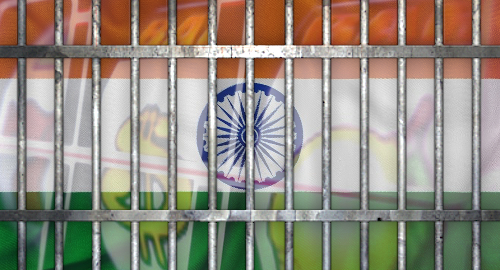 Online gamblers could face six months in prison if a new law passes in India’s southeastern state of Andhra Pradesh (AP).
Online gamblers could face six months in prison if a new law passes in India’s southeastern state of Andhra Pradesh (AP).
On Thursday, AP information minister Perni Venkataramaiah disclosed that the state cabinet had approved amendments to the AP Gaming Act 1974 that will criminalize online poker, rummy and other so-called ‘skill’ games. Venkataramaiah said the decision was taken to protect impressionable youths who have been ‘misled’ by unscrupulous gambling operators.
Assuming the amendments survive potential legal challenges, AP residents caught gambling online could do six months behind bars. Gambling operators are looking at a full year for a first offence, with two-year sentences for operators who fail to learn their lesson the first time.
Pressure to ban online gambling in all its various forms in AP isn’t new but the cause recently took on new urgency. Like most countries, India has reportedly experienced a surge in online gambling activity during the COVID-19 pandemic lockdown, but India is also dealing with a supposed rise in the number of illegal online networks run by Chinese nationals.
India has also banned over 100 Chinese-developed apps on the grounds of national security. China and India are currently embroiled in a tense standoff over a disputed border region that has inflamed anti-China sentiment in India, so it’s tough to tell how much of this crackdown is political theater.
Meanwhile, just across the AP state line, the state of Karnataka is mulling further regulation of online gambling, although whether that’s good or bad has yet to be determined. Late last month, Minister for Rural Development K S Eshwarappa responded to online complaints about the social cost of online gambling by tweeting that “a comprehensive review of these online gamblings [sic] will be considered in the next step.”
The minister appeared to be suggesting some kind of punitive action was under consideration, although Karnataka recently gave in-principle approval for the Bangalore Turf Club (BTC) to commence online betting as a means of salvaging its season, which had been significantly impacted by COVID-19. Racing bodies in other states are now clamoring for the right to join BTC on this promising new digital horizon.
India’s fractured regulatory environment was recently addressed by the Madras High Court in a case involving gambling in the state of Tamil Nadu. With most state laws based on the decidedly pre-modern Public Gambling Act 1867, the Court said it “hopes and trusts that this Government shall take note of the present alarming situation and pass suitable legislation, thereby, regulating and controlling such online gaming through license.”